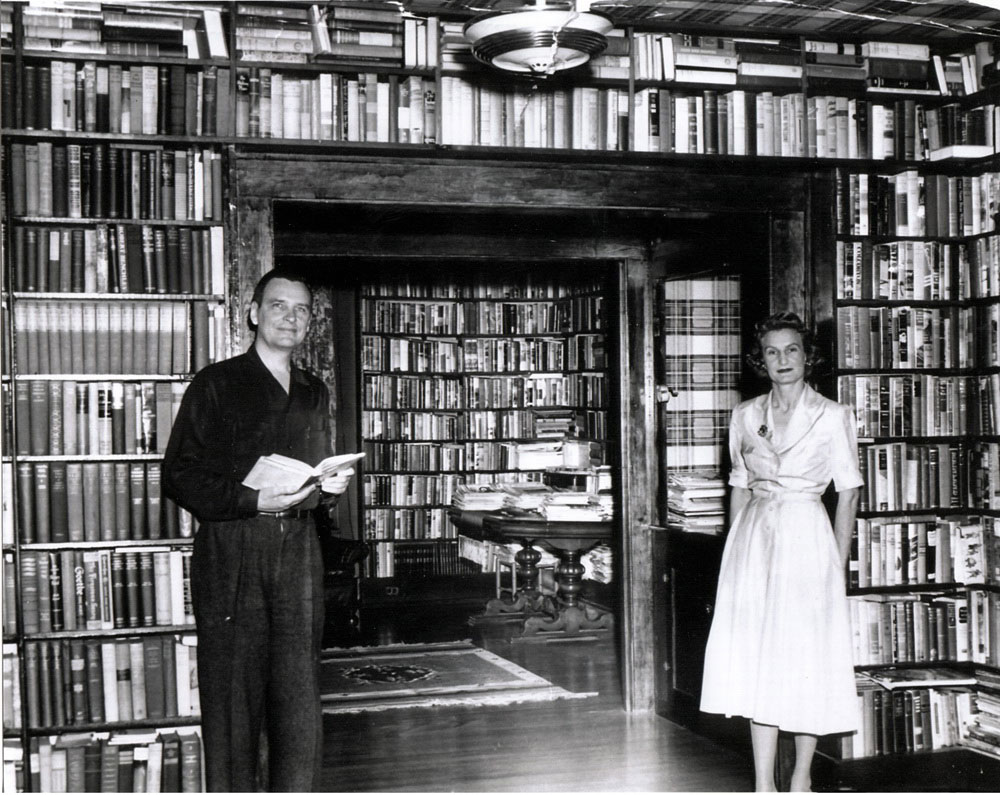
Becoming a well-established writer is a challenging task for anyone, but it was an even steeper mountain to climb for young females in the 1950s.

Wilma Dykeman was one of these young women. Though publishers found her early works too controversial, she opened doors that were often closed to women of this period, all while maintaining a marriage and motherhood. Her works would become a voice for the people and land of rural Appalachia and an inspiration to writers everywhere for generations to come.
“The regional literature of Tennessee and North Carolina begins, for me, with Wilma Dykeman,” said Dr. Margaret Brown, author of The Wild East: A Biography of the Great Smoky Mountains. “Although there is an earlier literary group called ‘local color writers’ who set their stories here, they used the mountains as an exotic location for what could be called a romance novel or hunting and fishing adventures. Dykeman, who was born in Asheville, never stopped trying to understand our unique environment, and she played a critical role in the movement to clean up the Pigeon River.”
Dykeman’s parents, Willard and Bonnie Dykeman, would foster an appreciation for the natural world in their daughter despite the blooming industrial growth in the area. Dykeman would later state that her childhood environment on the outskirts of Asheville did not prepare her for a career as a writer, invoking the idea that great writers are only born from tragic upbringings.

However, Dykeman was not without inspirational material. After the death of her father and with the cloud of the Great Depression lingering over her teenage years, Dykeman turned to the cultural traditions and beauty of the land she was raised in as inspiration for her magazine articles and books. Whether fiction or nonfiction, her works found a place in the hearts of all those who consumed them.
Sharing the natural and cultural history of Appalachia came naturally to Dykeman. However, being an author was no easy task for a woman in the 1950s. Publishers ripped apart her first manuscript, The French Broad, criticizing its ecological statements as being too controversial and disinteresting. Taking the comments in stride, Dykeman persisted, and The French Broad was published in 1955, the 49th book in the Rivers of America Series.

Dykeman was not completely without support. Her husband, James R. Stokely Jr., encouraged Dykeman’s ambitions and offered assistance wherever he could manage, even going so far as to be her co-author on a book about social injustices. Their nurturing relationship was an anomaly in their small, rural town where the people were more familiar with strict gender norms. After the births of their two sons, Dykeman had a new inspiration. She did not shy away from the fact that she was a mother but rather included her experiences in her writings, sharing rarely expressed perspectives and pulling in a new avenue of readers.
Ever the activist, Dykeman would partner with Stokely to travel around the country during the civil rights movement, gaining entry into places most women would not be able to access. Dykeman had a desire to see what was happening firsthand. She interviewed countless people on her journeys, many who otherwise would never have had the chance for their voice to be heard. Women of the Smokies, a 2016 publication, quotes Dykeman as saying, “We let the South speak for itself; it had a multitude of voices.” Her book Neither Black Nor White, co-authored with Stokely, would amass honors and open more doors for their activism.
“I met Wilma when she spoke at Brevard College a couple of decades ago,” reminisced Dr. Brown. “She had read enough of my work to know that I could be hard on the ‘local color’ movement. ‘I know who you are,’ she said when I introduced myself. ‘You’re just here to see if I get it right.’ ‘Not so,’ I smiled. ‘I’m here to hear the voice of a great book, The French Broad.’”
Wilma Dykeman was an author, an activist, a wife, a mother, but most importantly, she was an Appalachian woman who used her words to become an inspiration and voice for people across the South and beyond. Her mission and thoughts live on today in anyone who reads her works, encouraging them to step out into the natural world and appreciate it for all that it is.
Reagan Lane is an intern with GSMA for the summer of 2022. She is a history major at Brevard college with an interest in a career in the National Park Service. She has a passion for educating people of all ages on the history of public lands.
Subscribe to get the latest posts sent to your email.
The Great Smokies Welcome Center is located on U.S. 321 in Townsend, TN, 2 miles from the west entrance to Great Smoky Mountains National Park. Visitors can get information about things to see and do in and around the national park and shop from a wide selection of books, gifts, and other Smokies merchandise. Daily, weekly, and annual parking tags for the national park are also available.